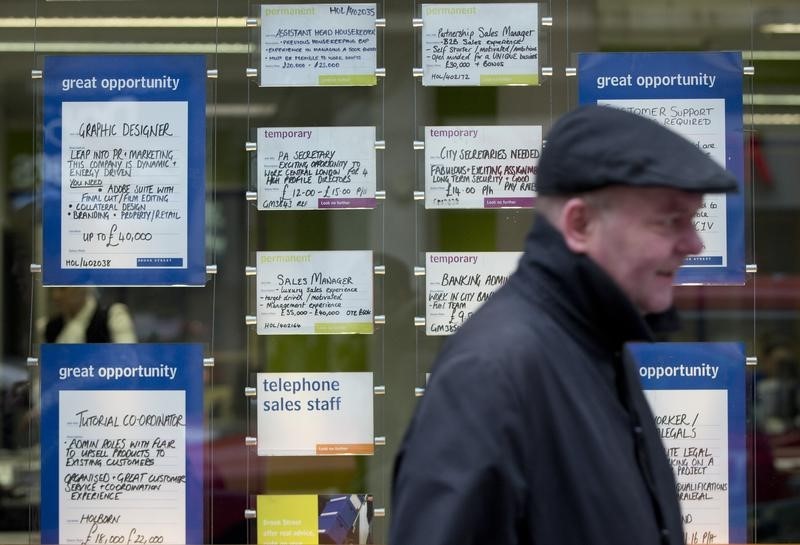LONDON (Reuters) - The pay of British workers picked up slightly more than expected in the first quarter, official data showed on Wednesday, while the unemployment rate fell to its lowest since mid-2008.
The Bank of England, which is due to give its latest assessment on Britain's economy later on Wednesday, is keeping a close eye on labour costs as it considers when to start raising interest rates.
The Office for National Statistics said total average weekly earnings in the three months to March, including bonuses, rose 1.9 percent compared with the same period a year earlier, from 1.7 percent in February.
Excluding bonuses, pay rose by 2.2 percent.
Economists taking part in a Reuters poll had forecast total earnings would rise by 1.8 percent and that earnings excluding bonuses would increase by 2.1 percent.
The number of unemployed people fell by 35,000 in the first quarter to 1.83 million, bringing the unemployment rate to 5.5 percent -- its lowest level since the three months to July 2008.
Unemployment has fallen sharply since the middle of 2013, but earnings only recently started to inch upwards. Inflation plunged to zero percent in February and in March, pushed down by tumbling oil prices, meaning living standards are rising after a long period of earnings falling in real terms.
In February, the BoE predicted wage growth will speed up sharply to reach 3.5 percent by the end of this year.
In March alone, total pay rose by 3.3 percent, the biggest increase since April 2013.

The number of people claiming unemployment benefit in April fell by 12,600, the smallest decline since March 2013, compared with a forecast from economists for a fall of 20,000.